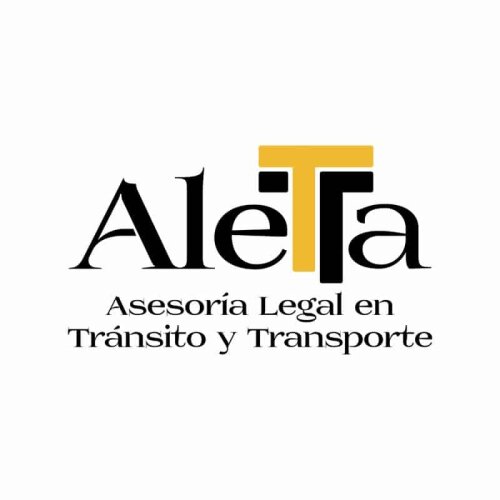Best Marine Insurance Lawyers in Colombia
Share your needs with us, get contacted by law firms.
Free. Takes 2 min.
Or refine your search by selecting a city:
List of the best lawyers in Colombia

VISADOS PARA USA |Visa Americana | Visa Canadiense | Renovar Visa Americana| Visa B1 B2|Visa K1|Visa J1|VisaF1|
15 minutes Free ConsultationAbout Marine Insurance Law in Colombia
Marine Insurance in Colombia is a specialized field of insurance law that deals with the protection of maritime property such as ships, cargo, ports, and related liabilities during transit. Governed by both national legislation and international maritime conventions, this sector is designed to cover losses or damages related to marine adventures. The Colombian legal framework for Marine Insurance includes regulations that comply with global standards, facilitating international trade and shipping.
Why You May Need a Lawyer
There are several scenarios where legal assistance may be necessary in the context of Marine Insurance:
- Claim Disputes: Disagreements can arise between insured parties and insurers concerning the settlement of claims.
- Contract Interpretation: Legal counsel can assist in interpreting complex insurance policy documents to ensure complete understanding and protection.
- Fraud Investigations: Assistance may be required if fraud is suspected in filing a marine insurance claim.
- Compliance Issues: Legal advice is critical to remain compliant with both national and international maritime regulations.
- Risk Management: Lawyers can help optimize insurance coverage to manage risk exposure effectively.
Local Laws Overview
Several key aspects of Colombia's local laws are particularly relevant to Marine Insurance:
- Colombian Commercial Code: Contains specific provisions governing marine insurance contracts, including policy terms and conditions, indemnity issues, and the responsibilities of both parties.
- National Maritime Authority (DIMAR): Regulates maritime activities in Colombia, including oversight of insurance practices related to despatching and navigation.
- Application of International Conventions: Colombia is a party to several international treaties such as the International Convention on Civil Liability for Oil Pollution Damage, which influence marine insurance practices.
- Judicial Precedents: Colombian courts' decisions can impact the interpretation and enforceability of marine insurance contracts.
Frequently Asked Questions
What does marine insurance typically cover?
Marine insurance usually covers damage to ships, cargo losses, accidents, piracy, environmental damage, and legal liabilities arising from maritime operations.
Is marine insurance mandatory in Colombia?
While not universally mandatory, marine insurance is often required by contract or regulation, especially for commercial shipping ventures and specific cargo types.
How are claims processed under a marine insurance policy?
Claims are typically processed by assessing the damage, verifying the circumstances, and fulfilling policy conditions before negotiating settlements based on documented loss.
Can I insure my cargo while in transit beyond Colombian waters?
Yes, international marine insurance policies can cover cargo while it is en route, including voyages passing through or beyond Colombian waters.
What should I consider when choosing a marine insurance policy?
Key considerations include the scope of coverage, exclusions, deductible amounts, policy limits, insurer reputation, and the ability to comply with both Colombian and international regulations.
How are marine insurance premiums determined?
Premiums are calculated based on risk factors such as ship type, cargo value, route hazards, historical loss data, and the safety measures in place.
Are there any specific environmental liabilities covered by marine insurance?
Yes, marine insurance can cover environmental liabilities related to oil spills or other pollutant discharges, subject to the policy terms and applicable conventions.
What happens if a claim is denied?
If a claim is denied, policyholders can seek a legal review of the denial reasons and potentially dispute the decision through negotiation, mediation, or litigation.
Can a policyholder negotiate the terms of a marine insurance contract?
While standard terms are typical, policyholders can often negotiate specific conditions or endorsements tailored to their individual needs and risk profiles.
What legal jurisdiction applies to marine insurance disputes in Colombia?
Disputes are generally resolved under Colombian law and jurisdiction, though international contracts might specify alternative locations or governing laws for arbitration.
Additional Resources
For further assistance, the following resources can prove invaluable:
- Superintendencia Financiera de Colombia: Provides oversight and regulation of financial and insurance institutions in Colombia.
- National Maritime Authority (DIMAR): Offers guidance on compliance with maritime regulations.
- International Chamber of Shipping: Provides global guidance and best practices for marine operations and insurance.
- Local Maritime Law Firms: Legal experts in marine insurance can offer in-depth advice specific to individual needs.
Next Steps
If you require legal assistance with Marine Insurance in Colombia, consider the following steps:
- Research and Identify Needs: Understand your specific requirements and consider any existing insurance policies or contracts.
- Contact a Reputable Lawyer: Choose a lawyer or firm with expertise in marine insurance and local law for tailored advice.
- Gather Documentation: Compile all relevant documents, including policies, correspondence, and any recorded incidents or claims.
- Schedule a Consultation: Meet with your legal advisor to discuss the situation, evaluate options, and decide the best course of action.
By following these steps, you can ensure that you receive the legal guidance needed to effectively navigate Marine Insurance matters in Colombia.
Lawzana helps you find the best lawyers and law firms in Colombia through a curated and pre-screened list of qualified legal professionals. Our platform offers rankings and detailed profiles of attorneys and law firms, allowing you to compare based on practice areas, including Marine Insurance, experience, and client feedback.
Each profile includes a description of the firm's areas of practice, client reviews, team members and partners, year of establishment, spoken languages, office locations, contact information, social media presence, and any published articles or resources. Most firms on our platform speak English and are experienced in both local and international legal matters.
Get a quote from top-rated law firms in Colombia — quickly, securely, and without unnecessary hassle.
Disclaimer:
The information provided on this page is for general informational purposes only and does not constitute legal advice. While we strive to ensure the accuracy and relevance of the content, legal information may change over time, and interpretations of the law can vary. You should always consult with a qualified legal professional for advice specific to your situation.
We disclaim all liability for actions taken or not taken based on the content of this page. If you believe any information is incorrect or outdated, please contact us, and we will review and update it where appropriate.
Browse marine insurance law firms by city in Colombia
Refine your search by selecting a city.













